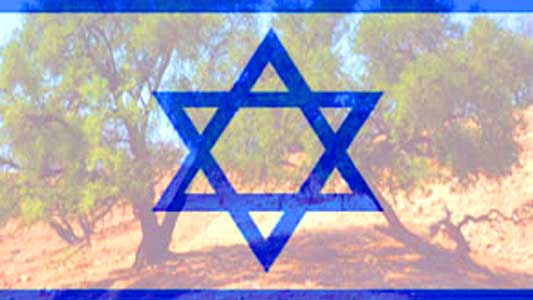Israeli Argan Oil & Argan 100

Could Israeli Projects impact the Hard Won Transformation of the lives of Berber Womens of Morocco?
Israel has been trying to establish itself in the Argan Oil business and is starting to grow the Argan tree in the Negev desert Israel. The project is part of a national program to encourage new Israeli settlers to establish new communities in more rural areas. Israeli companies have been developing what they call a “super strain” of Argan. They claim that this strain should survive in less harsh conditions and produce ten times more nuts than the trees in Morocco.
The Argan 100 Tree
Trees were propagated in Israel from cuttings to obtain “copies” of the original Moroccan stock. Since then they have pollinated trees with other trees this to produce a hybrid strain resistant to soil disease.
Israeli Argan Oil growers are now even claiming that the Argan tree was a native of this part of the world thousands of years ago.
There are around 40 million Argan trees in Morocco but only around 20,000 trees in Israel. Argan trees thrive in the desert conditions where hot dry days are followed by cold nights. They are also mainly found in the Essaouira region of Morocco and perhaps the salt in the air from the sea creates a soil which is salty – the same conditions found in parts of the Israeli Deserts? Israeli Argan trees are now being planted in the arid Negev Mountains, Ashkelon and Arava regions in Israel. A. Scientists believe that is maybe possible to grow the trees in the more northern Galilee region.
Professor Elaine Solowey of the Arava Institute for Environmental Studies, who is responsible for most of of the argan tree’s propagation in Israel worked with argan trees since 1985. She worked in the National School of Agriculture, Meknes, Morocco, on a 7-year project aimed at increasing fruit yield. In more recent years, she has been developing argan propagation at the Arava Institute. Whether this oil from a high production tree will have the same rich vitamin and nutrient content is we are not able to say. Argan trees developed in Israel produce around 100 kg of Argan fruit. This means that an Israeli tree can make two or three litres of oil. However, this may also be due to the fact that Israeli Argan Trees have been carefully planted and raised using modern techniques.
The Negev Desert
The Negev occupies more than half of land occupied by Israel around 13,000 km² which is around 55% of the total land area. This rocky desert is a mix of brown, dusty mountains with dry riverbeds and deep craters. Soil is generally poor and the climate varies from Mediterranean to dry desert. The Negev region has a nuclear reactor plus 22 agrochemical and petrochemical factories and a toxic waste facility.
Projects have been started and sponsored in Israel in the Negev desert outside of the town of Mitzpe Ramon. Plans exist to give families plots of land to farm there. The aim of the project is to start an Argan Oil industry to boost the local economy and allow Israelis to spread further in the land.
The land was traditionally occupied by the Bedouins of the region for thousands of years but with the mass immigration of Jewish people from around the world they now in a 25% minority.
In the past 10 years the developing Argan Oil business in Morocco has increased average wage of the Berber women by 10 times. If the Israeli project produces a cheap version of the Moroccan Argan Oil we feel that this can not help but impact the increased income that the Berber women’s co-operatives of Morocco have finally built up from producing Argan Oil. This much needed income is then most likely to end up in the hands of government sponsored Israeli farm businesses.
